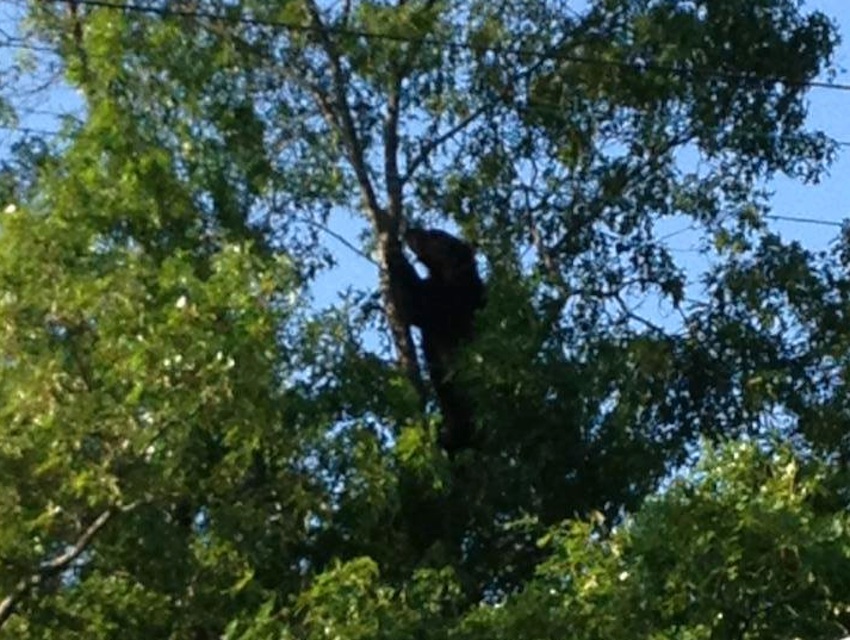Police Shoot and Kill Bear Hanging From a Tree in Newton

Photo via Newton Police on Facebook.
Putting down a bear the same week that the Bruins are battling it out for a chance to advance to the Stanley Cup Finals might not be good for Massachusetts morale, but police say it had to be done.
According to officials from the State Police, a black bear that was hanging by a tree limb near the Mass Pike on Sunday morning was put down after repeated attempts to subdue the animal with tranquilizers failed.
The bear was spotted around 6 a.m. running along the train tracks in the area, and then later in a tree adjacent to Washington Street in Newton, near the busy highway. During their attempt to get the bear out of the tree, officials closed down the highway for a total of two minutes on Sunday morning while the Environmental Police “neutralized the threat” to public safety posed by the bear. “The Environmental Police were on scene and had control of it. They tried several times to tranquilize the bear,” Newton Police said via Twitter.
But because their tranquilizing efforts were unsuccessful, the bear was shot multiple times, and later died. Police said they killed the bear for “public safety reasons.”
Around 7:50 a.m., state police said environmental officers removed the bear’s body from the scene. “The Massachusetts State Police served in a support role in this matter,” police said in a statement. Calls to officials from the Environmental Police were not immediately returned on Sunday.
Bear sightings in suburban areas are not a new phenomenon, however. Roughly two weeks ago, Weston Police received two reports of bear sightings, according to the Metro West Daily News. Environmentalists told reporters that the “aqueduct from the Quabbin Reservoir in the western part of the state to Weston and Newton almost acts like a ‘highway for wildlife,'” and the bear population has increased drastically in the state, the report said.
In March, Governor Deval Patrick joined wildlife officials for a survey of the black bear population in Massachusetts. According to officials from MassWildlife, who have been in charge of a project to document the species since 1999, examining reproductive success, cub survival, adult female survival and human-bear interactions, there were only 100 bears when the study began in the 1970’s. Since then, the black bear population has grown to approximately 3,000 bears statewide.

